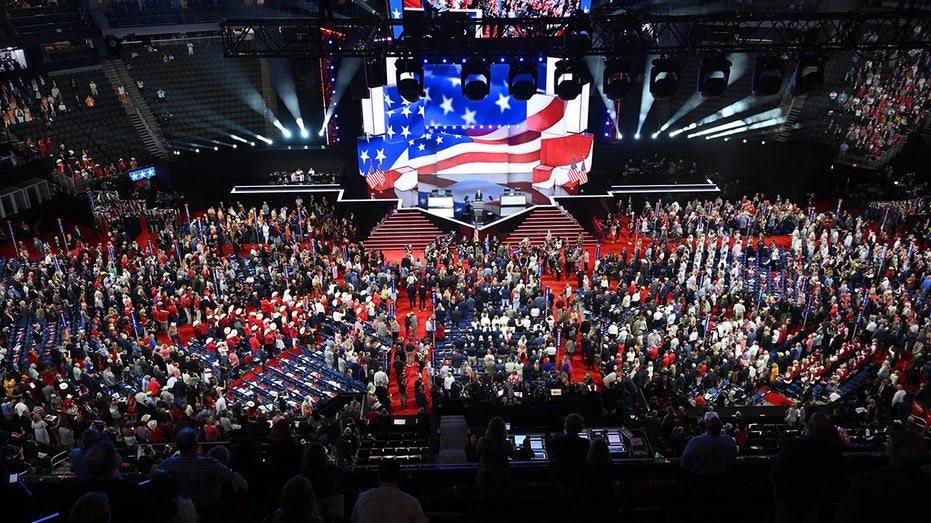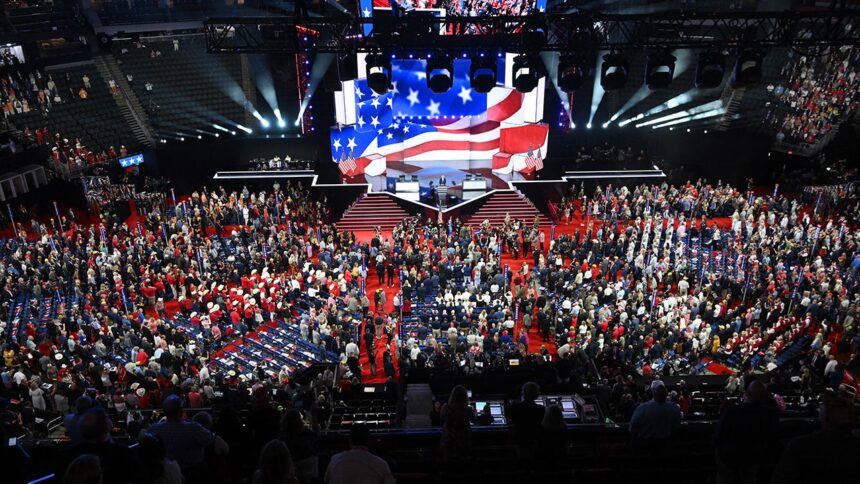“`html

The Republican Party is resolute in its commitment to ensure a robust legal presence as the 2024 elections approach, launching a new initiative focused on “election integrity” earlier this year to avoid the challenges faced in 2020.
Strengthening Ground Operations
This dual-faceted strategy aims to enhance the GOP’s grassroots efforts nationwide by both recruiting and training poll watchers and increasing transparency within the electoral process, according to senior officials from the Republican National Committee (RNC) during an interview with Fox News Digital.
As of now, approximately 230,000 volunteers have been enlisted across various states, including around 5,000 attorneys primarily stationed in critical battlegrounds such as Arizona, Georgia, Michigan, Nevada, North Carolina, Pennsylvania, and Wisconsin.
The Role of Legal Expertise
On Election Day itself and in subsequent days or weeks following it, these legal professionals may prove invaluable.
SUPREME COURT UPHOLDS PENNSYLVANIA PROVISIONAL BALLOT RULING: A SIGNIFICANT SETBACK FOR THE GOP
A Focus on Litigation
The second aspect of their election integrity initiative emphasizes litigation. Some lawsuits are designed to guarantee “poll worker parity,” ensuring that Republican observers have access at numerous polling locations nationwide.
Additonally, they have initiated multiple lawsuits aimed at enforcing stricter voter ID laws and citizenship verification processes while imposing new criteria for mail-in ballots and provisional ballots accepted by different states.
A Proactive Legal Approach
The GOP has taken an assertive stance by filing pre-election lawsuits that party officials claim help establish clear regulations in pivotal swing states.
Currently reported figures indicate that over 130 lawsuits have been filed by party officials—representing a significant portion of nearly 200 election-related cases anticipated for the upcoming elections in 2024.
Recent Legal Victories
This surge of GOP-led litigation, particularly prominent leading up to Election Day—especially within seven key swing states crucial for determining presidential outcomes—has garnered attention from party leaders who highlight courtroom victories achieved earlier this summer as notable successes.
- An example includes a successful lawsuit against Detroit’s city administration, where Republicans argued for increased representation among election inspectors due to an imbalanced ratio favoring Democrats significantly (7.5-to-one). The court ruled that state law mandates near-equal representation from both major parties resulting in more Republican observers being appointed across over 300 precincts.
- A recent victory occurred last week when a judge approved extending early voting deadlines from November 5th until November 8th in Bucks County, Pennsylvania—a decision welcomed by GOP officials seeking broader access for voters during this critical period before Election Day.
Pursuing Transparency in Elections
Republican leaders emphasize their achievements regarding enhanced transparency within state electoral processes:
“Our goal is to ensure America’s elections operate transparently and reliably—a benefit for all citizens regardless of political affiliation,” stated a senior RNC official during an interview with Fox News Digital.
The Challenge Ahead: Building Trust Among Voters
However on the brink of Election Day it remains uncertain whether these initiatives will effectively foster greater trust among voters regarding U.S. elections’ legitimacy.
The notion of “election security” encompasses not only implementing protective measures around voter registration but also ensuring public confidence that results are credible.
A recent AP-NORC survey revealed stark differences between party lines; while about 71% registered Democrats expressed high confidence levels concerning national election outcomes only one-third (24%) Republicans felt similarly assured about results.
Potential Post-Election Challenges
While some ongoing litigations could serve as grounds for contesting certain state results post-Election Day experts remain skeptical about how impactful these challenges might be—even if races turn out closely contested .< /P >
According Andrew McCarthy , former federal prosecutor , courts typically hesitate taking action after votes are cast . “We want fair play established well ahead so everyone understands rules,” he explained . “It’s challenging getting courts involved post-election when they risk altering final outcomes.”< /P >
This sentiment resonates especially strongly with Supreme Court justices who tend toward caution regarding politically charged disputes according Trey Gowdy , another former federal prosecutor . “The Supreme Court tends cautious against becoming embroiled into overtly political matters,” he noted .< /P >
< i >< strong > Stay updated with latest developments along campaign trail through our dedicated Fox News Digital hub!
<
Source
“`






